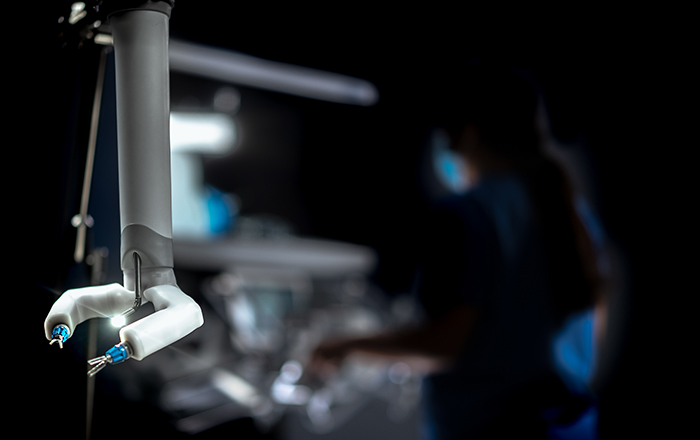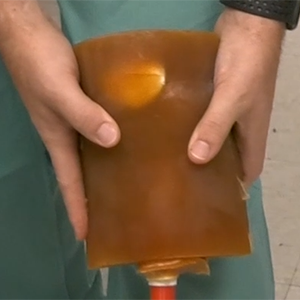
LINCOLN, Nebraska (September 19, 2023)—Virtual Incision Corporation, a UNeMed startup developing of the world’s first miniaturized robotic-assisted surgery system, announced a $30 million extension to its previous $46 million Series C financing.
The $30 million funding extension will support the company’s operations well into 2025 as it seeks to disrupt the industry with miniaturized surgical robotic systems small enough to fit in a surgical tray. The compact, capable, and convenient design is uniquely positioned to expand robotic-assisted surgery to the millions of patients who do not have access to the technology today. The system was built and developed through a collaboration between University of Nebraska-Lincoln robotics engineer Shane Farritor, PhD, and former University of Nebraska Medical Center surgeon, Dmitry Oleynikov, MD.
The new funding comes on the heels of a series of significant milestones toward commercial readiness of the MIRA Surgical System. Earlier this year, Virtual Incision completed an Investigational Device Exemption clinical study for MIRA’s use in bowel resection, and announced that the FDA is reviewing Virtual Incision’s “De Novo request” to market the device. If granted marketing authorization, the company plans to initiate a limited launch of MIRA across select U.S. centers.
Virtual Incision is focused on advancing patient access to robot-assisted surgery, especially in routine and high-volume procedures, many of which are performed in outpatient and ambulatory surgery centers. The investment will support this mission through a gynecologic clinical study planned for 2024. The company will also continue to develop a smaller version of the minibot to enable additional general surgery applications with a first-in-human clinical study expected next year.
In the near term, Virtual Incision will support a collaboration between NASA and the University of Nebraska-Lincoln to lay the foundation for performing telesurgery in space. A modified version of MIRA aboard the International Space Station will perform simulated surgical tasks.
The recent round was led by current investors Bluestem Capital, Endeavour Vision, Baird Capital, cultivate(MD) Capital Funds, and PrairieGold Venture Partners, as well as new health-tech investors Arboretum Ventures and InVivium Capital.
Including this most recent raise, Virtual Incision has now attracted more than $137 million in investments since its initial founding in 2006.











